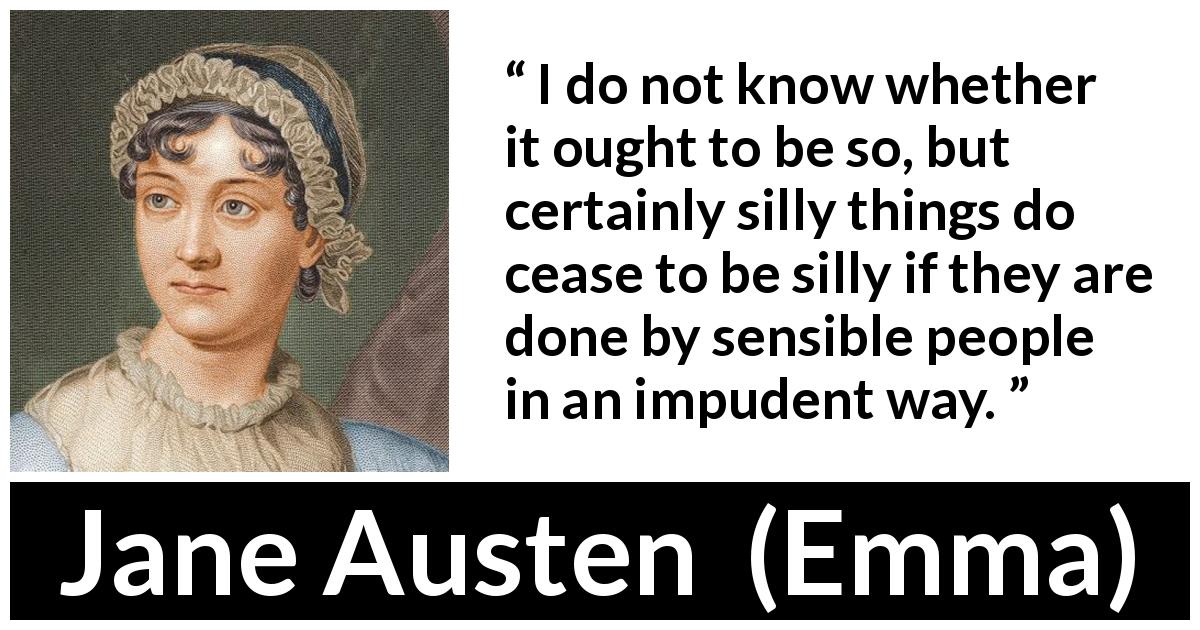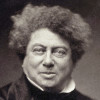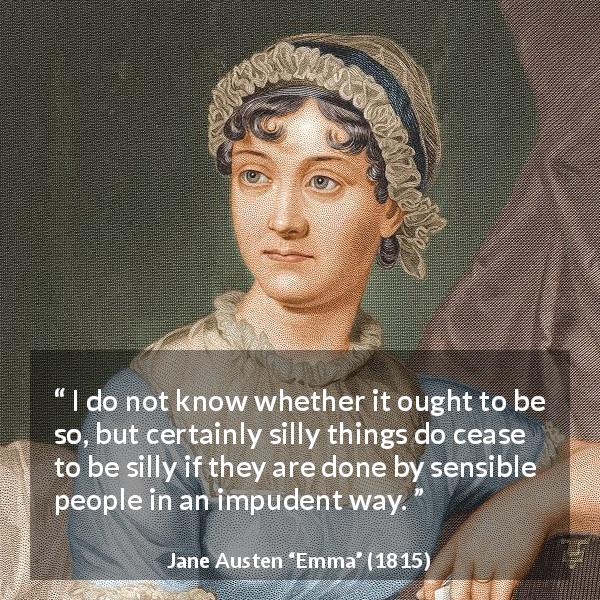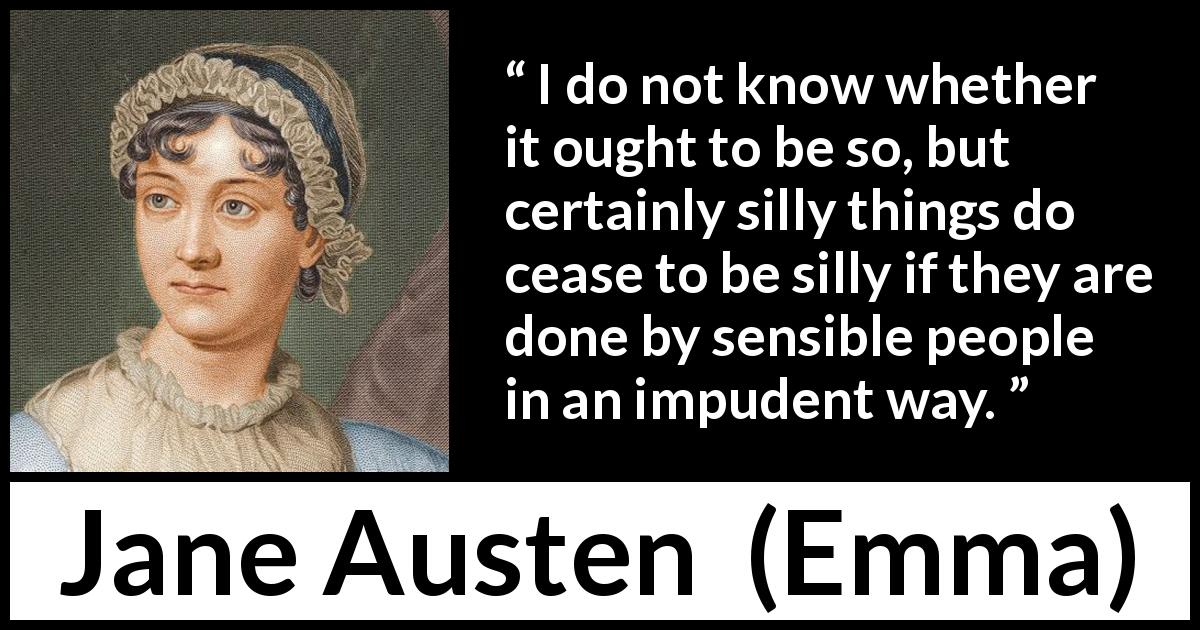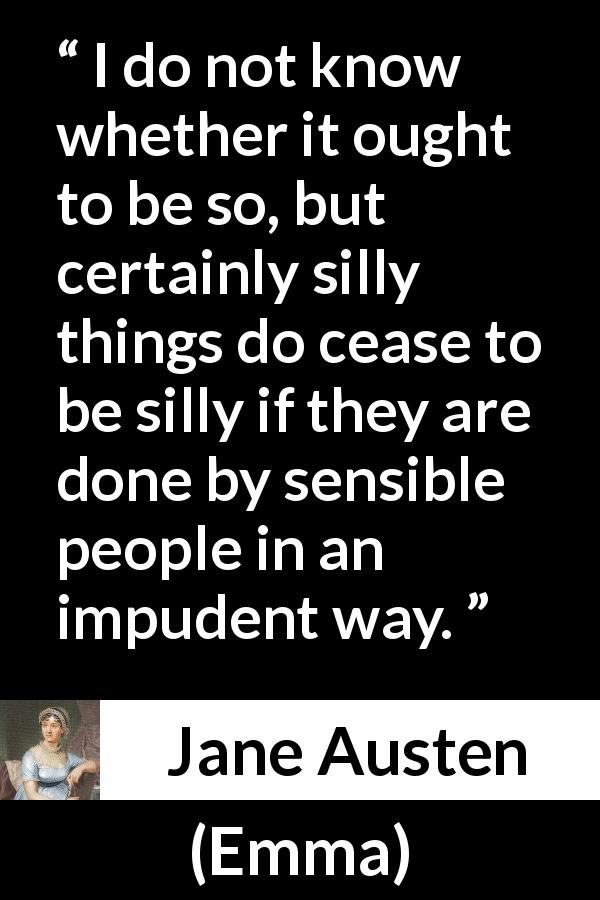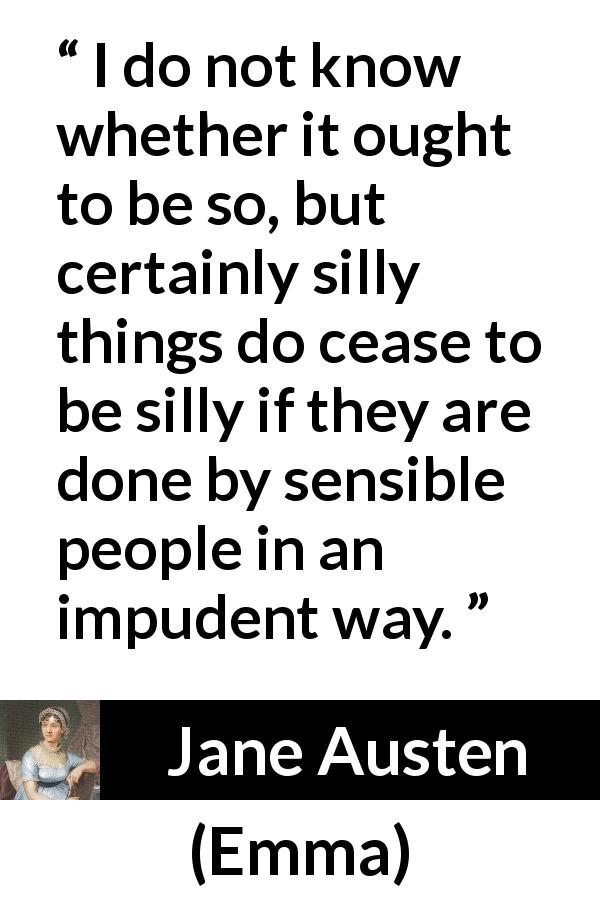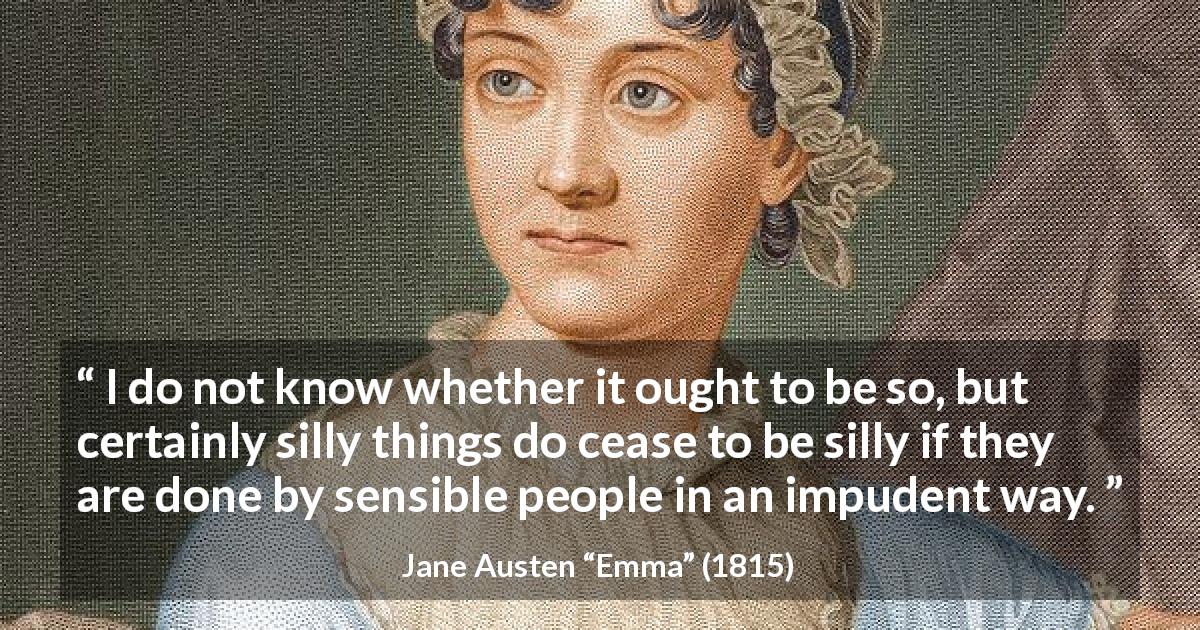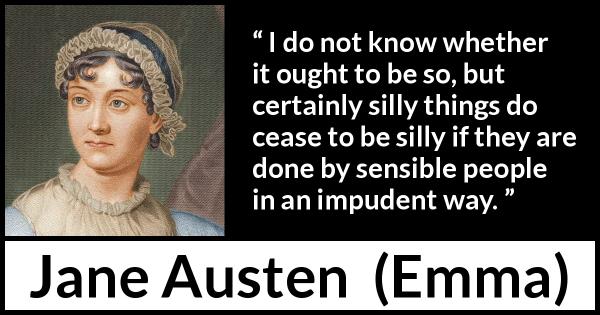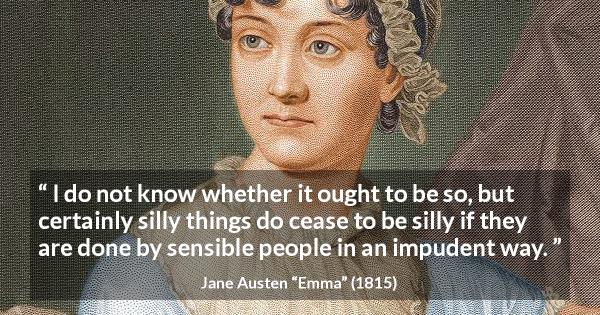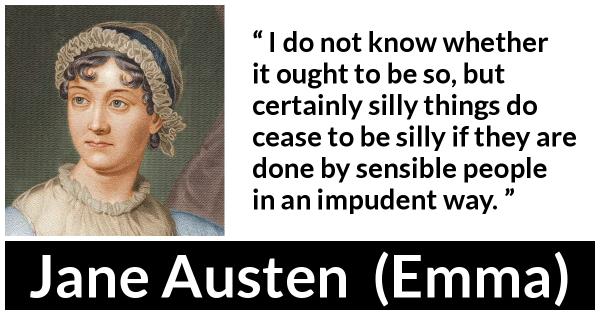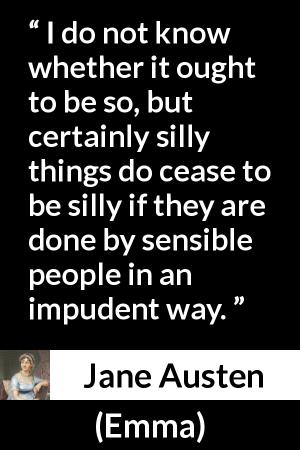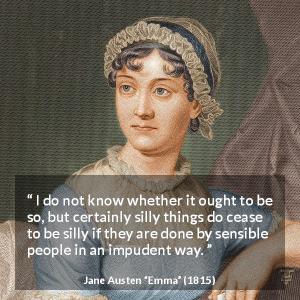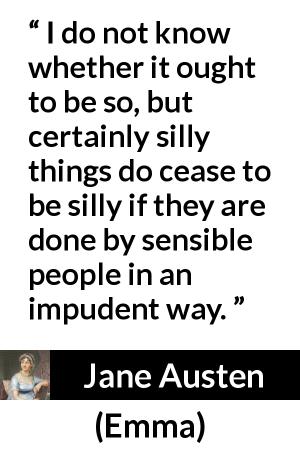“ I do not know whether it ought to be so, but certainly silly things do cease to be silly if they are done by sensible people in an impudent way. ”
Jane Austen, Emma (1815). copy citation
| Author | Jane Austen |
|---|---|
| Source | Emma |
| Topic | stupidity sensibility impudence |
| Date | 1815 |
| Language | English |
| Reference | |
| Note | |
| Weblink | http://www.gutenberg.org/files/158/158-h/158-h.htm |
Context
“He had no reason to wish his hair longer, to conceal any confusion of face; no reason to wish the money unspent, to improve his spirits. He was quite as undaunted and as lively as ever; and, after seeing him, Emma thus moralised to herself:—
«I do not know whether it ought to be so, but certainly silly things do cease to be silly if they are done by sensible people in an impudent way. Wickedness is always wickedness, but folly is not always folly.—It depends upon the character of those who handle it. Mr. Knightley, he is not a trifling, silly young man. If he were, he would have done this differently.” source
«I do not know whether it ought to be so, but certainly silly things do cease to be silly if they are done by sensible people in an impudent way. Wickedness is always wickedness, but folly is not always folly.—It depends upon the character of those who handle it. Mr. Knightley, he is not a trifling, silly young man. If he were, he would have done this differently.” source
